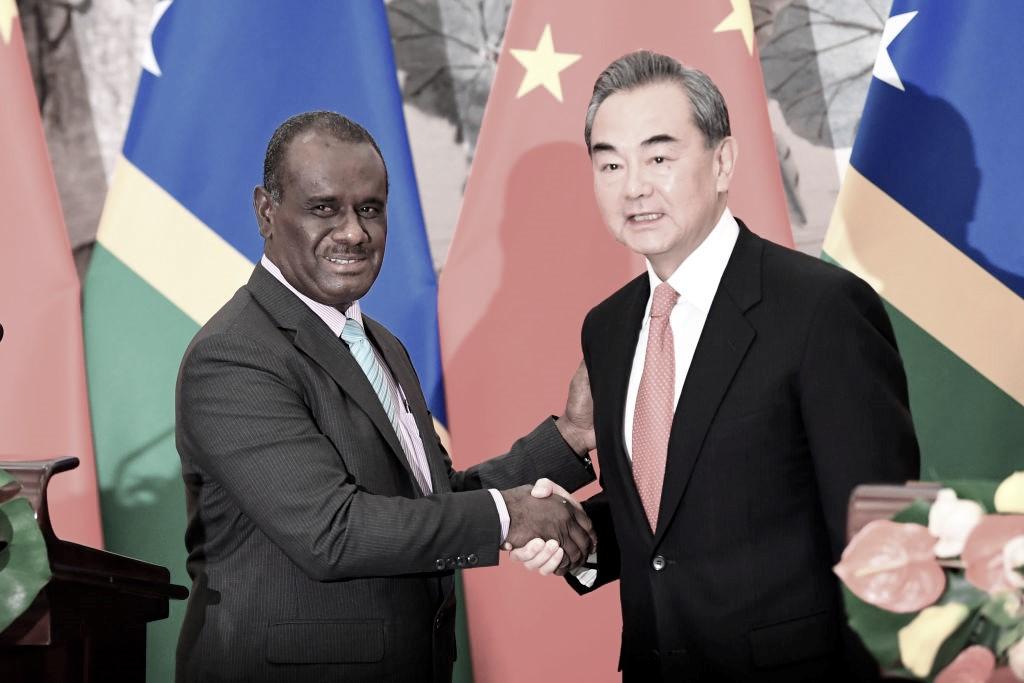Chinese delegations have barred journalists who report on the Chinese foreign minister’s Pacific tour from calling out questions, recording and accessing information prompting concerns about the tour’s secrecy.
Chinese Foreign Minister Wang Yi is on day six of a ten-day trip to eight Pacific countries in a bid to deepen ties with the island nations. He has visited the Solomon Islands, Kiribati, Samoa, Fiji and Tonga and will arrive in Vanuatu, Papua New Guinea and Timor-Leste in the coming days.
Australia and the United States have been closely watching the tour, concerned about Beijing’s increasingly overt ambition to establish a military presence in their neighbouring countries after a security and economic deal between China and the region was leaked. However, the agreement was shelved on Monday due to a lack of consensus.
On Saturday, the Chinese foreign minister signed a deal with the island nation of Samoa, which included an exchange of letters for a fingerprinting laboratory for the police force to complement a China-funded police training academy.
However, despite the significant public and strategic interest in the visit, Pacific journalists have complained that Chinese delegations have limited journalists’ access to information.
The Fijian Media Association (FMA) on Tuesday said Chinese officials had blocked them from asking questions and only provided a briefing, according to Fijian Broadcasting Corporation.
Fijian journalist Lice Movono, who covered Wang’s visit to Fiji, told the Australian Broadcasting Corporation (ABC) on Tuesday that journalists “were treated like criminals” and that she has “never experienced” a similar situation.
She revealed that Chinese officials had tried to physically remove one cameramen and stood in front of the camera to block the filming, even though the cameraman had been granted a press pass.
On the same day, Movono told The Guardian that during Wang’s press conference, which was run by Chinese officials, a journalist was at risk of being escorted out of the room after putting forward a question, but his fellow journalists intervened to help him.
In another incidence, journalists have tried to “yell out questions anyway,” only to be yelled back by a Chinese government official, Movono recalled.
“I was quite disturbed by what I saw,” she told The Guardian.
“[As a journalist in Fiji] you can be jailed, or the company you work for can be fined a crippling amount that can shut down the operation.”
“But to see foreign nationals pushing you back in your own country, that was a different level.”
Dorothy Wickham, a journalist covering Wang’s trip to the Solomon Islands, wrote in an article for the Guardian on May 3 that police had “chased” a reporter and cameraman who were standing outside the national parliament in Honiara. The Solomon Islands governments have refused to disclose the content of its sweeping security deal with Beijing and rejected all interview requests, she noted.




